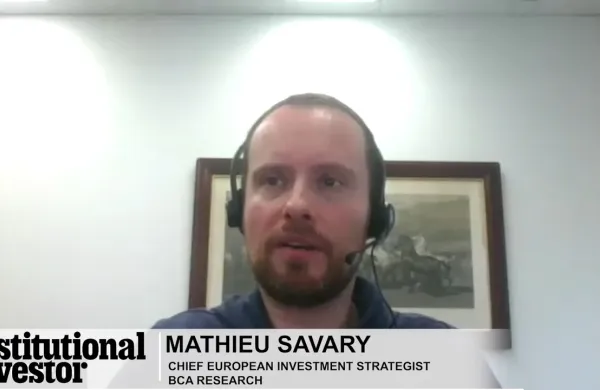Last week Baxter International, the Deerfield, Illinois healthcare company, announced it would buy Gambro AB, the privately held Swedish dialysis product maker for about $4 billion.
For Gambro, which is owned by Sweden-based private equity funds Investor AB and EQT, the opportunity to join Baxter and form the world’s second-largest dialysis company was too good to pass. Growth at Gambro in recent years has slowed down due to price competition and a slumping European economy. For Baxter, which in 2011 had revenue of nearly $14 billion and a pile of cash overseas, it was a strategic opportunity to deploy the capital. But for EQT and Investor AB, the two private equity funds that own Gambro, it was another highly profitable deal that the Swedish dealmakers helped engineer.
In an environment in which dealmakers that also are long-term global investors are in short supply, Swedish private equity funds find themselves in great demand. “We’ve always been investors for the long term, avoiding the cyclicals and focusing on telecommunications, transformational IT and healthcare,” says Thomas von Koch, a founding partner of EQT, which manages more than $18 billion in assets.
Although Sweden’s involvement in global M&As and private equity pales next to the U.S. and even the U.K., its importance within Europe has grown significantly — especially as most of its neighbors face economic uncertainty and forecasts of slow growth ahead. In 2011, the flow of investment funds into Sweden amounted to $5.6 billion or 14.1 percent of the total funds flowing into Europe, according to data compiled by EVCA, the Brussels-based trade group representing European private equity and venture capital. Just five years ago in 2007, the $4.6 billion of funds that went into Sweden accounted for only 5.7 percent of the total.
The flow of capital into 368 Swedish companies in 2011 rose to $8.7 billion or 7.4 percent of the total invested in European companies. In 2007, the flow of private equity into 478 Swedish companies was $2.1 billion, less than 1 percent of the total into European companies.
At a time when the euro zone is near collapse, beset by unstable currencies, conflicting laws and regulations, and unpredictable markets, Sweden — in spite of its size and geographical location — has emerged as one of the continent’s safe havens.
Sweden has created a pro-business economic climate that both domestic and foreign businesses feel comfortable about, says Johan Ohman, political adviser at the Ministry of Enterprise. ”We have a good and robust framework for public finances, low inflation, low interest rates and no tendency towards deficit spending,” says Ohman. Moreover, the country’s problems with competitiveness during the 1980s and the fact that Sweden is such an export-dependent nation (50 percent of GDP) has created an environment of stability and predictability for investments and business in Sweden.
Sweden is one of a handful of European countries with a triple-A rating from Moody’s. And although it too sees slower growth ahead, its projected GDP growth rate of 2.7 percent is far ahead of most developed countries, including the U.S.
“Our role in the markets has been defined by our international experience,” says Rolf Rising, head of business development for Invest Sweden in Stockholm. And although the overall European economy is in a decline, Sweden is in good shape, he explains.
Sweden, where Skype and, more recently, Spotify have been launched, is known for its digital-media innovation. But its healthcare industry has been one of the driving forces behind the recent dealmaking activity. Earlier in the year, diagnostics company Phadia was acquired by Thermo Fisher Scientific for $3.5 billion. Swedish medical technology provider Getinge, founded in 1904, acquired Atrium Medical, for $680 million. And EQT, which in 2007 purchased Denmark’s Dako, a leading company in tissue-based cancer therapeutics, sold it to Agilent Technologies for $2.2 billion.
“The once strong presence of Astra Zeneca and Pharmacia, two of the world’s largest pharmaceutical companies; a renowned research institution such as Karolinska; and a remarkable history of collaboration between public and private institutions has made Sweden a central platform in healthcare,” says Barbro Ehnbom, founder and chairman of Swedish-American Life Science Summit (SALSS), an annual gathering in Stockholm of life science companies and investors.
At SALSS, Michael Treschow, chairman of the board at Unilever, underscored the vital role of Sweden as an increasingly important intellectual hub for R&D. What made the country so vital was the cooperation between the business community, the government, universities, investors and NGOs. The pioneering role of Sweden could very well help shape similar developments in the developed markets as well as emerging and frontier markets, said Treschow.
In the 1990s Sweden had one of the worst financial crises of modern times. The deregulation of the credit markets in the 1980s created overexpansion and bubbles in real estate and finance. And by the early 1990s Sweden’s currency had crumbled, with interest rates soaring to 500 percent overnight. Real estate prices dropped 50 to 60 percent. Nearly twenty years later, Sweden stands atop a crumbling European economy, as one of the preferred centers of dealmaking and investment capital, second only to Germany.
“Sweden has put its economic crisis behind it,” says Leksell. “The country has rebuilt its infrastructure, reshaped its healthcare system; and with very tight controls on government finances and no deficit spending, it is one of the healthiest countries around,” he adds.






